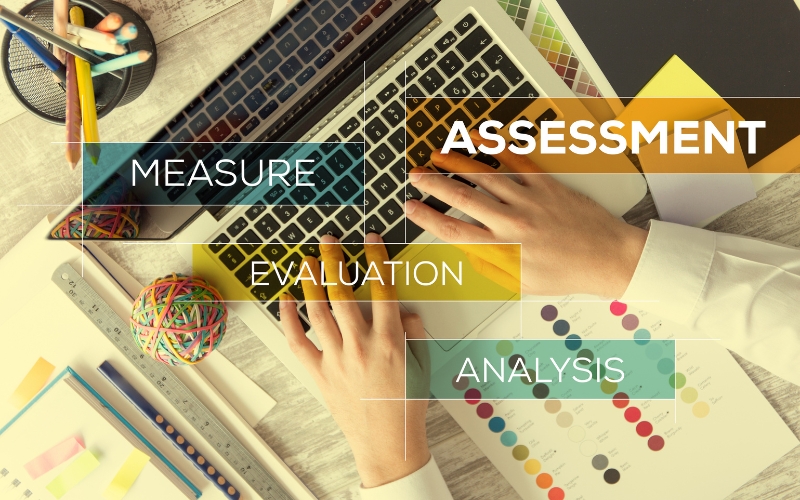- Understand Your Company's Culture
- Develop Behavioral Interview Questions
- Assess Alignment with Core Values
- Include Team-Based Interviews
- Observe Candidate Behavior During the Recruitment Process
- Evaluate Long-Term Compatibility
- Use Cultural Fit Assessments
- Look Beyond Experience and Skills
- Ready to Find Executives Who Fit Your Culture? Let JRG Partners Help You!
Cultural fit is an increasingly important factor in executive recruitment. Finding a candidate who aligns with your company’s values, mission, and workplace environment is just as crucial as assessing their technical skills and leadership abilities. Hiring executives who are not only qualified but also a good cultural fit ensures long-term success, improved employee retention, and overall organizational harmony. In this article, we’ll explore effective methods to evaluate cultural fit during the executive recruitment process.
Understand Your Company’s Culture

Before you can assess whether an executive candidate is a cultural fit, you need a clear understanding of your company’s culture. This involves identifying the core values, work environment, and behaviors that define how your organization operates. Consider the following questions:
What are your company’s mission and vision?
What are the values that drive decision-making?
How does your organization define leadership?
Is the work environment more collaborative or competitive?
How does your team prefer to communicate and work together?
Once you have a firm grasp of your company’s culture, it becomes easier to identify candidates who will thrive in that environment. Documenting these cultural attributes can also provide a benchmark for evaluating candidates during interviews.
Develop Behavioral Interview Questions

Behavioral interview questions are an effective way to assess how a candidate has handled situations in the past and whether their behavior aligns with your company’s values. These questions focus on real-world examples from the candidate’s experience and help reveal how they approach challenges, collaboration, leadership, and decision-making.
For example, you might ask:
“Can you describe a time when you had to make a difficult decision that impacted your team? How did you approach it?”
“Tell me about a time when you had to lead a team through a major change. What steps did you take to ensure the transition was successful?”
“How do you ensure alignment between your team’s efforts and the company’s broader mission?”
These types of questions allow you to gauge whether the candidate’s problem-solving approach and leadership style align with the way things are done at your organization. By understanding how they operate in different scenarios, you can evaluate their potential cultural fit.
Assess Alignment with Core Values

An essential component of cultural fit is the alignment of the candidate’s personal values with the organization’s core values. Executive candidates who share the same fundamental beliefs and ethical principles as your company are more likely to feel fulfilled and motivated, which translates into stronger leadership and engagement.
To assess this alignment, ask candidates direct questions about their values and how they apply them in the workplace. Some examples include:
“What motivates you in your leadership role?”
“How do you ensure your team remains aligned with the company’s mission and values?”
“What company value resonates with you the most, and why?”
By discussing values openly, you can evaluate whether the candidate’s approach to leadership and decision-making is consistent with the culture you’ve cultivated within your organization.
Include Team-Based Interviews

Cultural fit extends beyond the executive team—it impacts the entire organization. Including key team members in the interview process can provide valuable insights into how the candidate might interact with various departments and employees. Team-based interviews allow potential executives to meet with colleagues across different functions, providing a more comprehensive view of the candidate’s interpersonal skills and collaboration style.
During these interviews, team members can assess how well the candidate communicates, whether they can adapt to different personalities, and how comfortable they are working within the established dynamics of the team. After the interviews, gather feedback from the team to gauge whether they believe the candidate would be a good fit for the company’s culture.
Observe Candidate Behavior During the Recruitment Process

Throughout the recruitment process, there are several subtle opportunities to observe a candidate’s behavior and attitude, offering insights into their cultural fit. Pay attention to how they communicate with different members of your team, whether they ask thoughtful questions about the company culture, and how they handle potential challenges or unexpected changes during the process.
For example, how do they respond to rescheduling or unexpected shifts in the interview format? Are they adaptable and understanding, or do they express frustration? Candidates who demonstrate flexibility, curiosity, and respect for your company’s processes are more likely to align with your organizational culture.
Evaluate Long-Term Compatibility

Cultural fit isn’t just about how well an executive candidate will adapt in the short term—it’s also about ensuring they can grow and evolve with your organization. Consider whether the candidate is someone who can drive the company forward while remaining aligned with its core values.
When assessing long-term compatibility, focus on the following aspects:
Is the candidate aligned with the company’s long-term vision and goals?
Can they adjust to potential future changes in the company’s direction or leadership structure?
Do they demonstrate a willingness to continuously learn and adapt?
Hiring an executive who can evolve with your company ensures long-term success and a seamless fit within the broader organizational culture.
Use Cultural Fit Assessments

Some organizations use formal cultural fit assessments to evaluate how well a candidate matches the company’s culture. These assessments typically include personality tests, leadership style evaluations, and behavioral assessments that provide insights into the candidate’s work style, communication preferences, and leadership approach.
While these tools can offer valuable data, they should be used in conjunction with interviews and observations rather than as the sole method of evaluation. Cultural fit assessments can help identify potential red flags and provide an additional layer of understanding about the candidate’s compatibility with the company’s culture.
Look Beyond Experience and Skills

It’s easy to focus on a candidate’s experience and qualifications, especially when hiring for executive roles. However, assessing cultural fit requires looking beyond their resume and understanding how they will contribute to your company’s environment. A highly qualified candidate may struggle if they don’t align with your organization’s culture, while someone with a slightly less conventional background but a strong cultural fit could be a long-term success.
Make sure that cultural fit is weighted just as heavily as experience and skills when evaluating candidates. This approach helps ensure that your executive team members are not only experts in their fields but also champions of your company’s culture.
Ready to Find Executives Who Fit Your Culture? Let JRG Partners Help You!
At JRG Partners, we understand the importance of cultural fit in executive recruitment. Our team specializes in identifying top talent that aligns with your company’s values and long-term goals. Contact JRG Partners today to ensure your next executive hire is the perfect fit for your organization.


